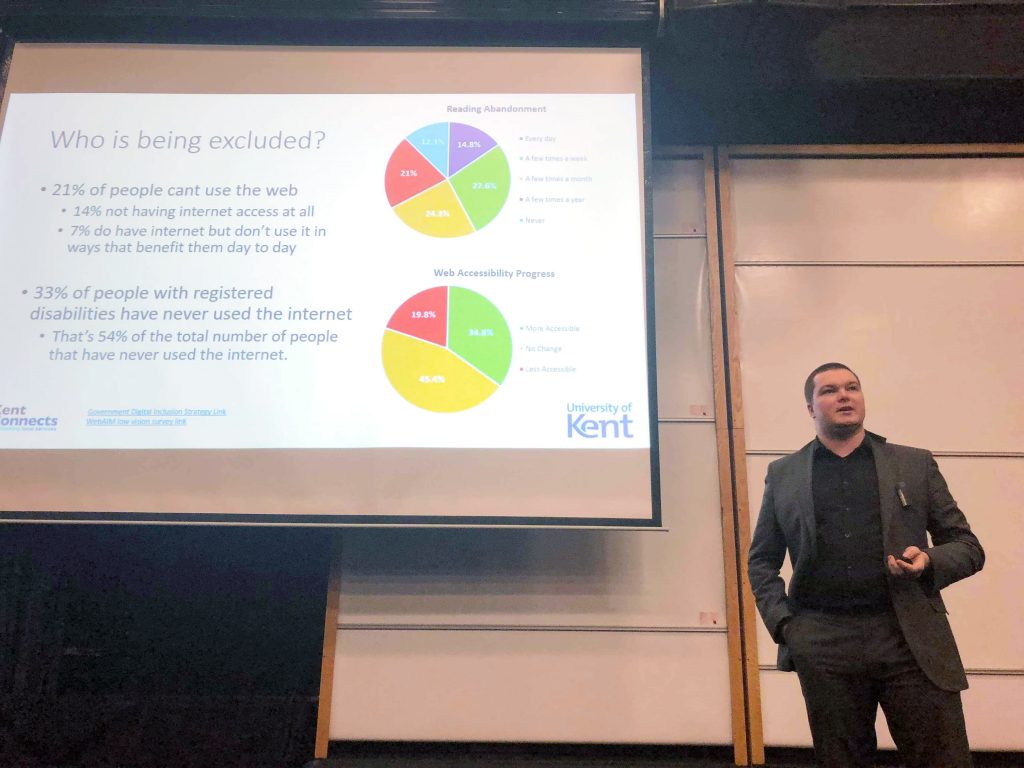the University of Southampton with support from UKRI are running ‘Teaching Accessibility in the Digital Skill Set’ is a 4 year research study funded by UK Research and Innovation that seeks to build understanding of accessibility pedagogy, so that teachers of accessibility, trainers and peer-educators in academia and industry have empirical research and evidence-based resources to call upon when developing their teaching.
This project led by Dr Sarah Lewthwaite shares many contributors with this toolkit and we are highly supportive of where this work will lead.
Accessibility in teaching at the University of Kent

Working with the School of Computing at the University of Kent, we have embedded accessibility learning into the curriculum in a number of areas across the breadth of the courses.
We do this by guest lecturing as part of modules and including accessibility into assessments. One of our Accessibility Lecture presentations shows the approach that we take, focusing on accessibility principles and understanding the benefit for users and for the students as developers. in later modules we focus on more technical aspects of accessibility.
The students we are reaching will one day become the next web developers, project managers, digital content writes etc. of our organisation.
This is a circular benefit for all as we invest in future skills that may benefit our organisations, and the University know they are teaching skills that are desired in the working world which helps improve their students employability.
There are other areas within the university that would help expand the sources of accessibility skills growth and we want to look at other departments that would be suitable to also include accessibility teaching. There is also much room for expansion if we were to also start engaging with colleges, or local schools to help introduce accessibility thinking at earlier ages.
We strongly recommend that you as local employers think about the other organisations in your area that you could begin to work with to provide similar benefits.
